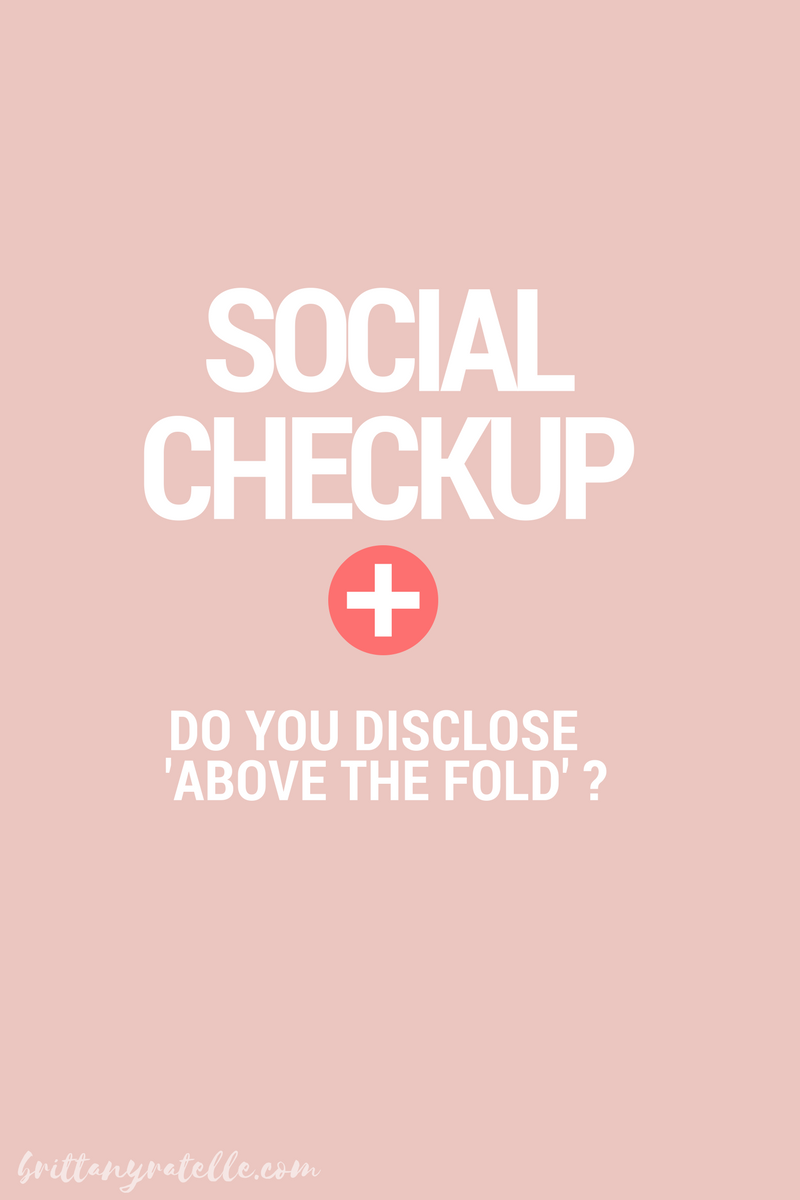Don’t forget to disclose…dis’ clothes that you got for free!
And who says lawyers aren’t funny?! Ha…
But, seriously. If you got that new bag or sunnies for free — you need to disclose to your tribe. The general guidelines for making sure your content is FTC-compliant is to disclose ANY commercial relationship or conflict of interest between you — the influencer/brand enthusiast/blogger/youTuber/vLogging gluten-free pirate, etc — and the company that gave you something of value–cash, product, discount, hookup, whatever.
What should the disclosure be?
- No magic words — but “ad” or “sponsored” are clear and concise
- The disclosure should be as close as possible to the content – so for certain platforms like Instagram, the text “ad” or “sponsored” should be in the first 125 characters before the caption is cut off with “…more” On Twitter — it needs to to fit within those 144 characters.
- In a font that is easy to read, and in the language that matches the content
- For video — on the screen long enough to be noticed, read, and understood (this includes snapchat, or IG stories)
- For audio (e.g. podcasts) — read at a cadence that is easy for consumers to follow
When should you disclose?
- If you think you should disclose, then you probably should
- If the average consumer would want to know about the relationship between a company and you when deciding on purchasing. Put yourself in the shoes of your audience, the consumer — if YOU would want to know the post is sponsored, then disclose the endorsement. Upfront and clearly.
- If you have been given cash for sponsored content.
If you have been given merchandise or product for free — even unsolicited. If you end up saying something about it on any of your channels — you need to disclose that you didn’t buy it on your own dime. Have too much stuff showing up? Sounds like a #bloggerproblem to me, but either get some help to sort it out or start a spreadsheet to keep track. If the product makes it onto your feed in a material way, then make a material disclosure to your audience.
While it may be tempting to think that the big ol’ Federal Trade Commission would never bother with a small-time influencer like yourself, that idea doesn’t actually hold water. The FTC sent out 90 letters to various bloggers and influencers in early 2017 to remind them of their disclosure obligations. While FTC violations can have a maximum fine of $11,000 per incident, you are not going to get a citation for that right out of the gate if there is a problem. However, I’m guessing you’d rather not be the cautionary tale blogger that the hammers comes down on hard.
The FTC has a great FAQ about this if you want more information about specific content and product scenarios.
HELPFUL RESOURCES
Make sure you’re legally legit with my free legal workbook!
Do you have the contracts you need in place? Take a free quiz and find out exactly what you need for your business at creativecontracts.co.
Listen and subscribe to Creative Counsel on iTunes, Overcast, Stitcher, Spotify, and iHeartRadio.
Or browse through my quick tips and tricks by connecting on Instagram.
LET’S CONNECT
Interested in working together for one-on-one legal services? Book some time on my calendar!
*This blog post is not intended as legal advice. No attorney-client relationship. For informational purposes only.

Be the first to comment